Year 8 Decimals Worksheets
Adding and Subtracting Decimals
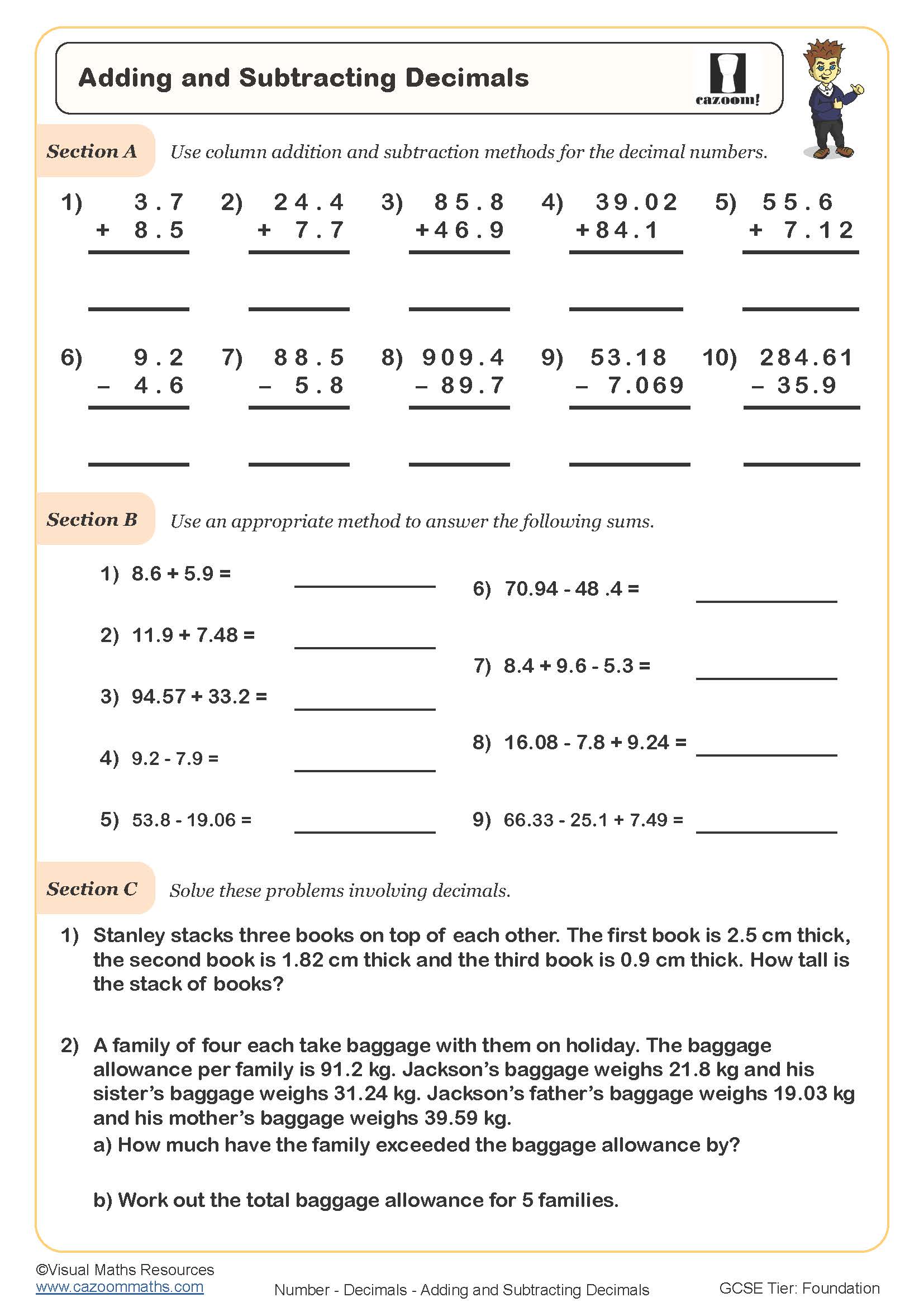
Column Addition - Decimals (A)
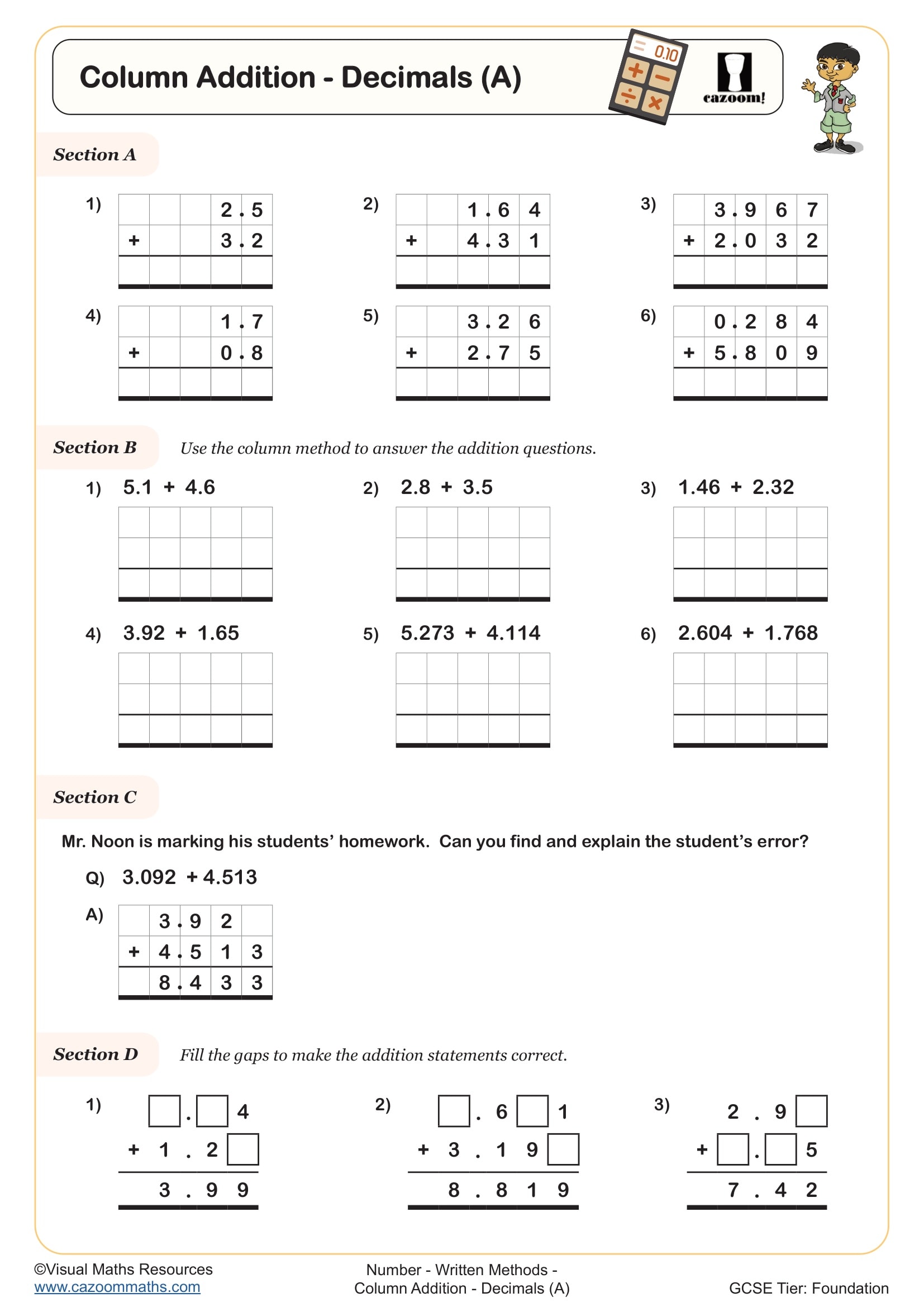
Column Addition - Decimals (B)
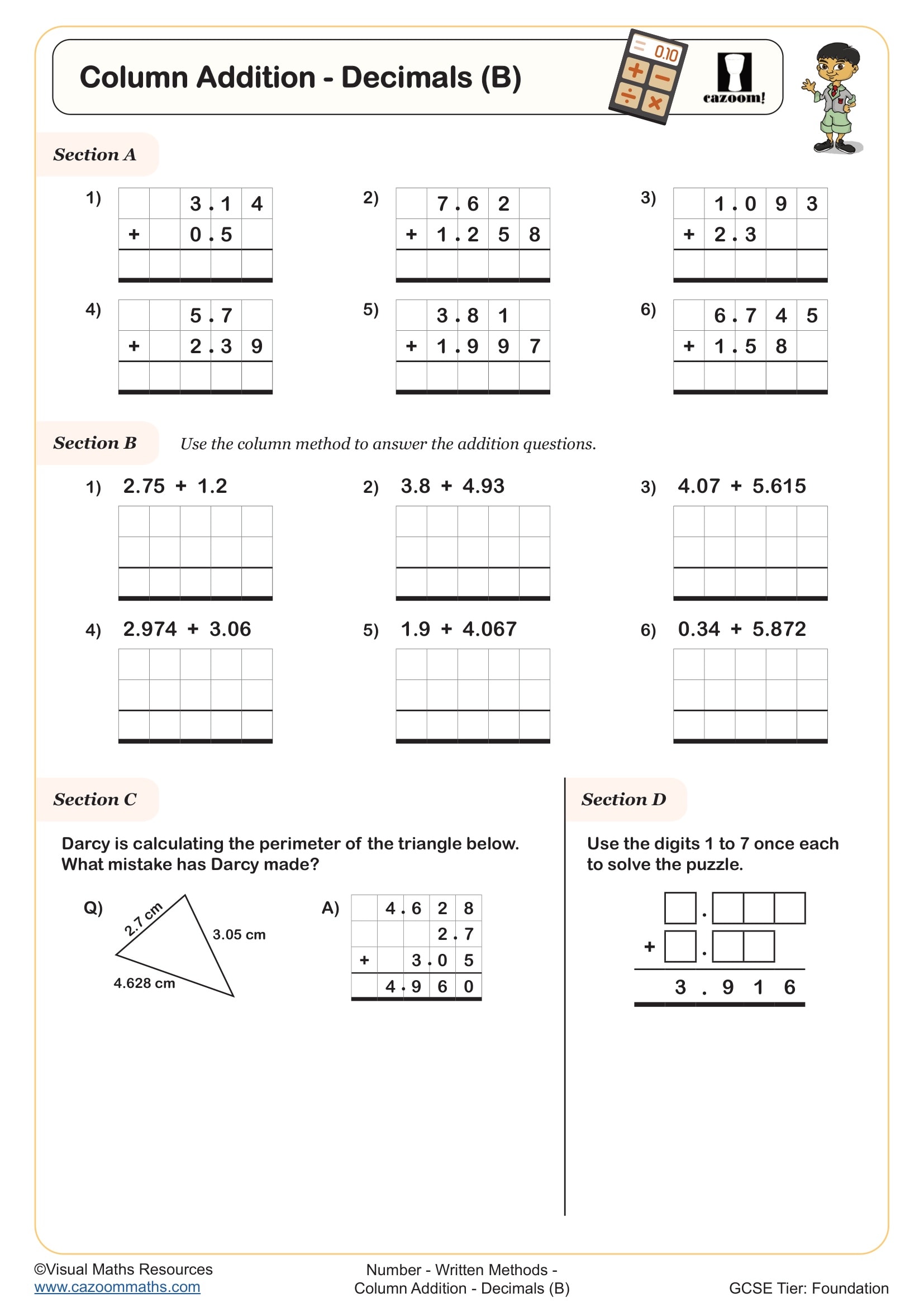
Comparing Decimals
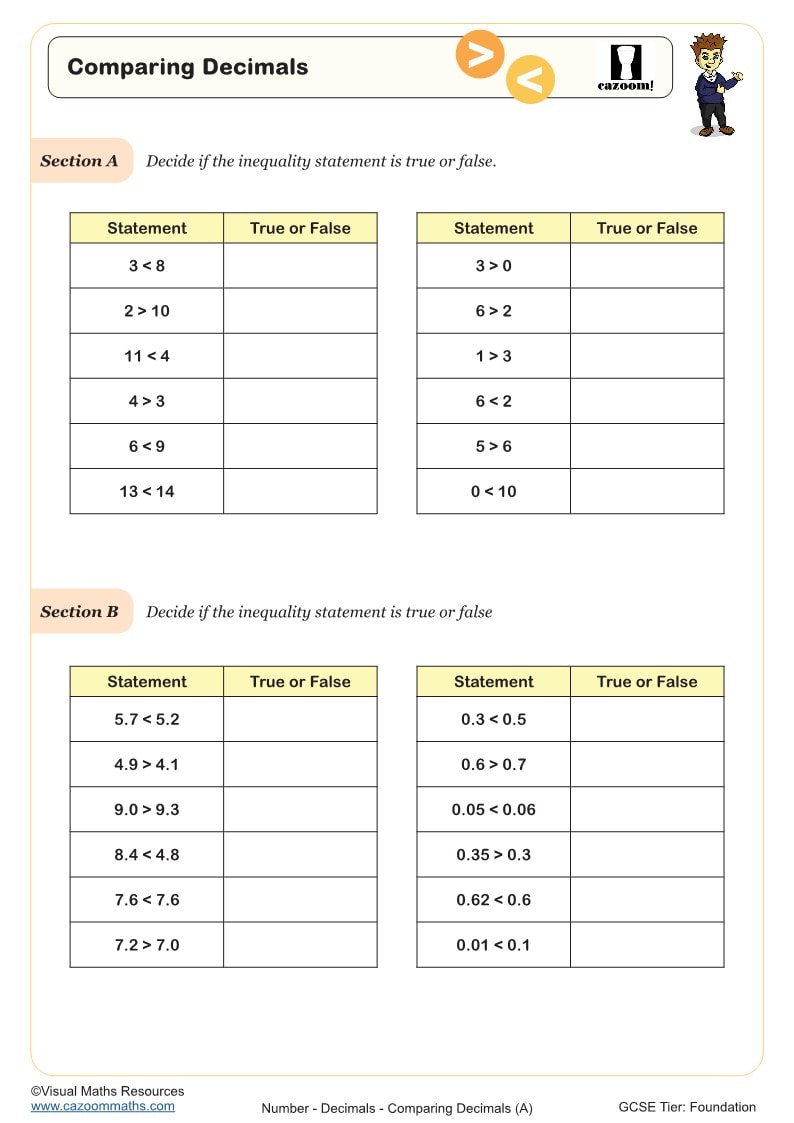
Converting Between Minutes and Hours (B)
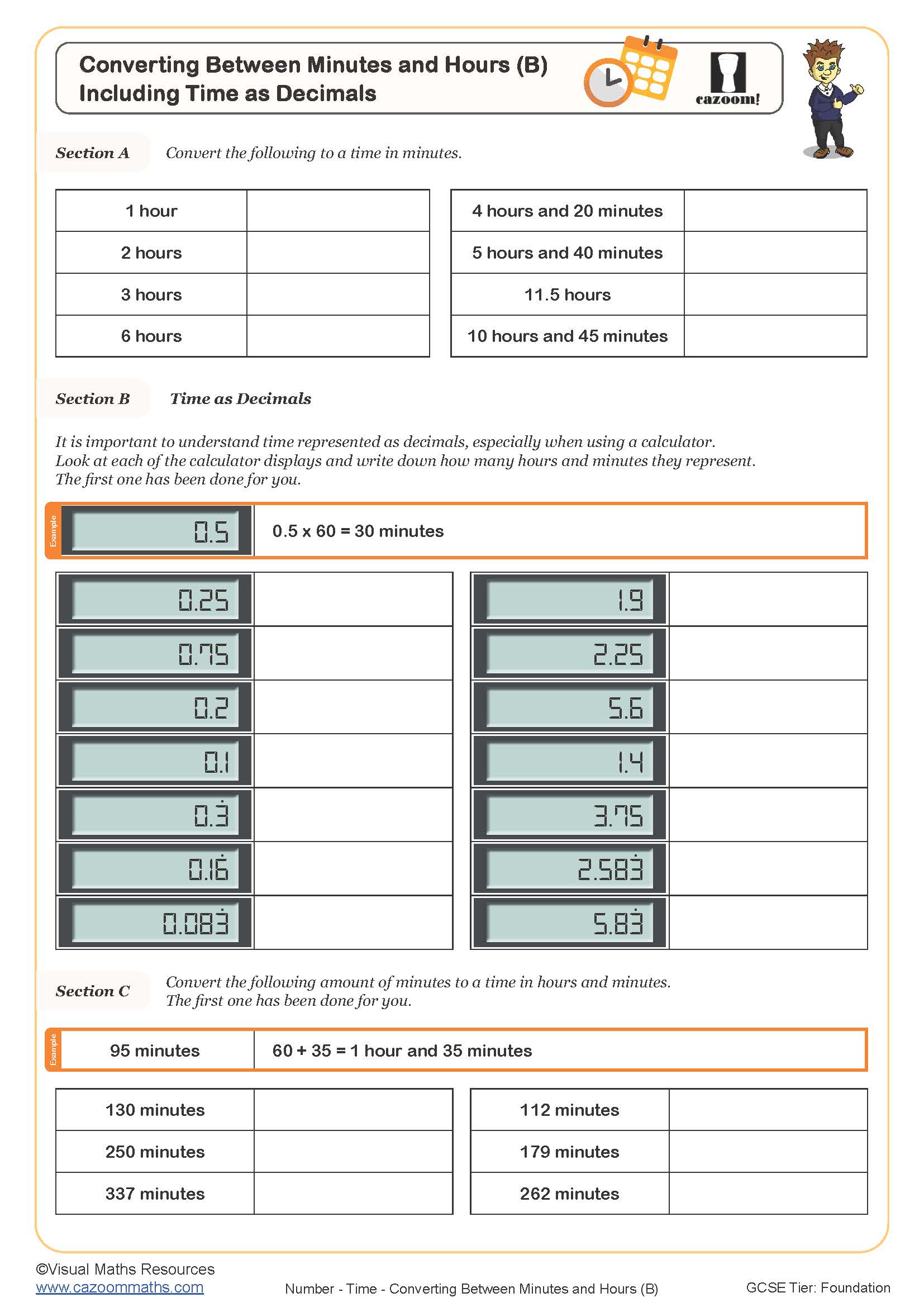
Decimal Operations Mixed Exercise
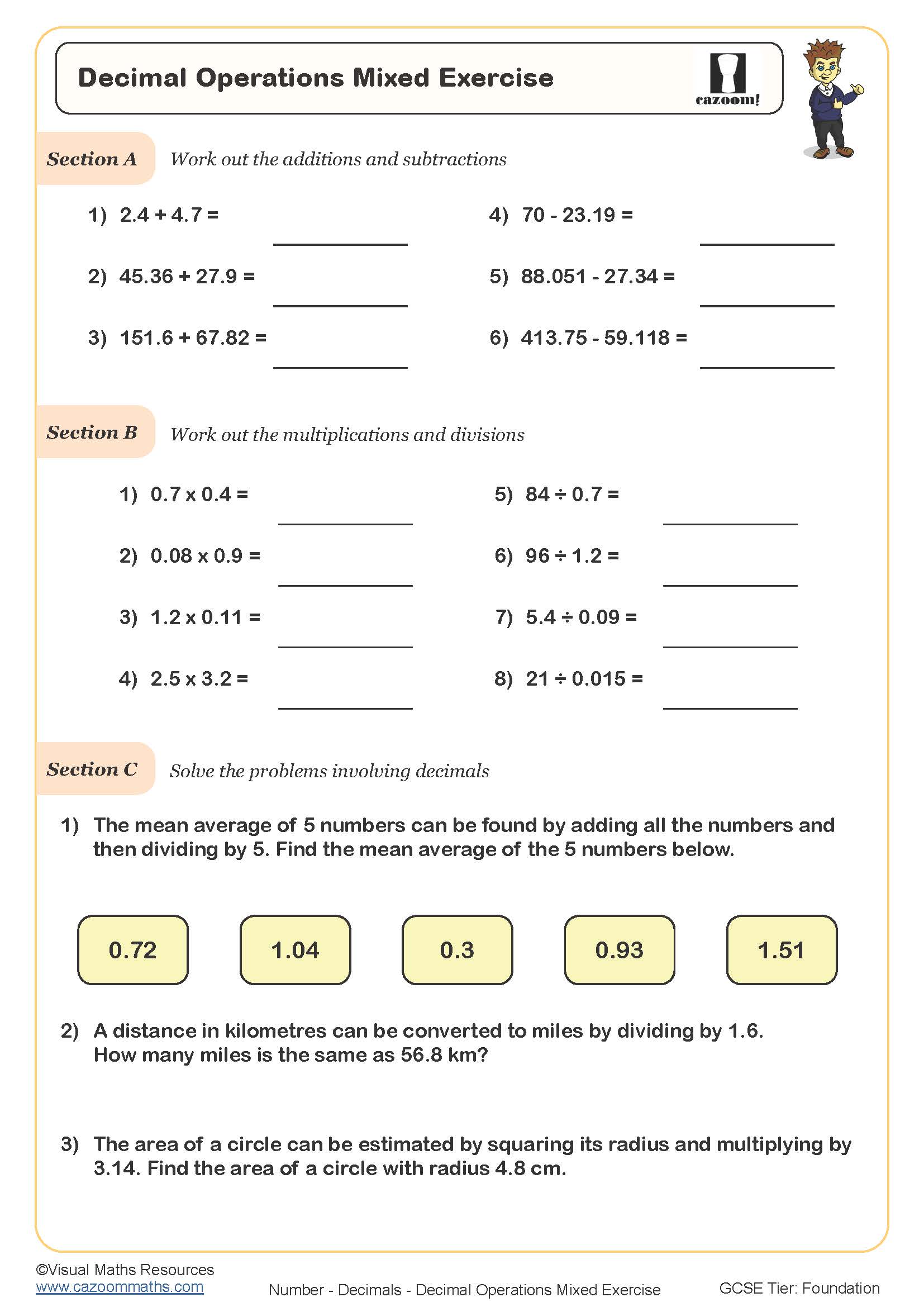
Decimal Operations Ten Minute Challenge
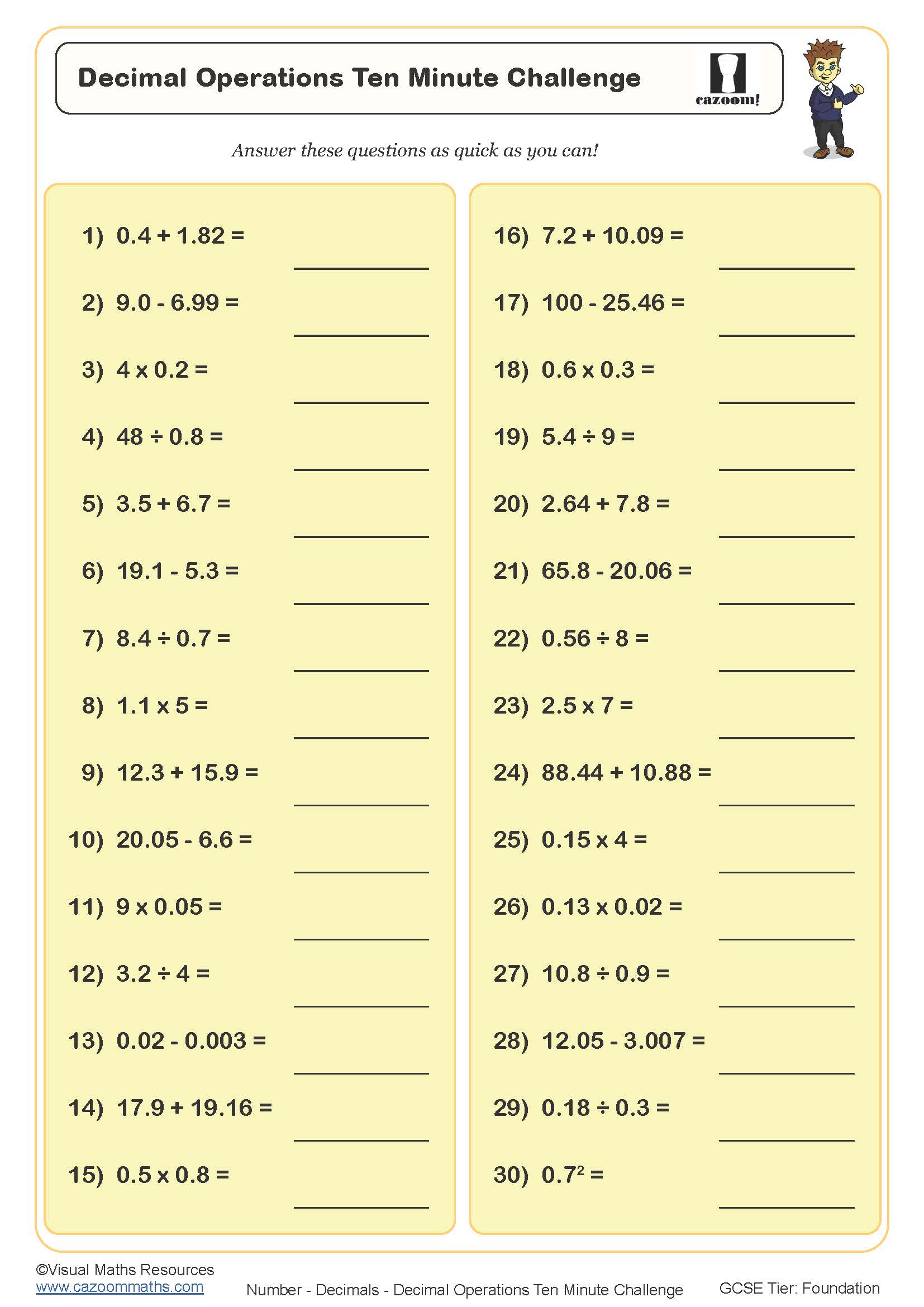
Decimals on Number Lines
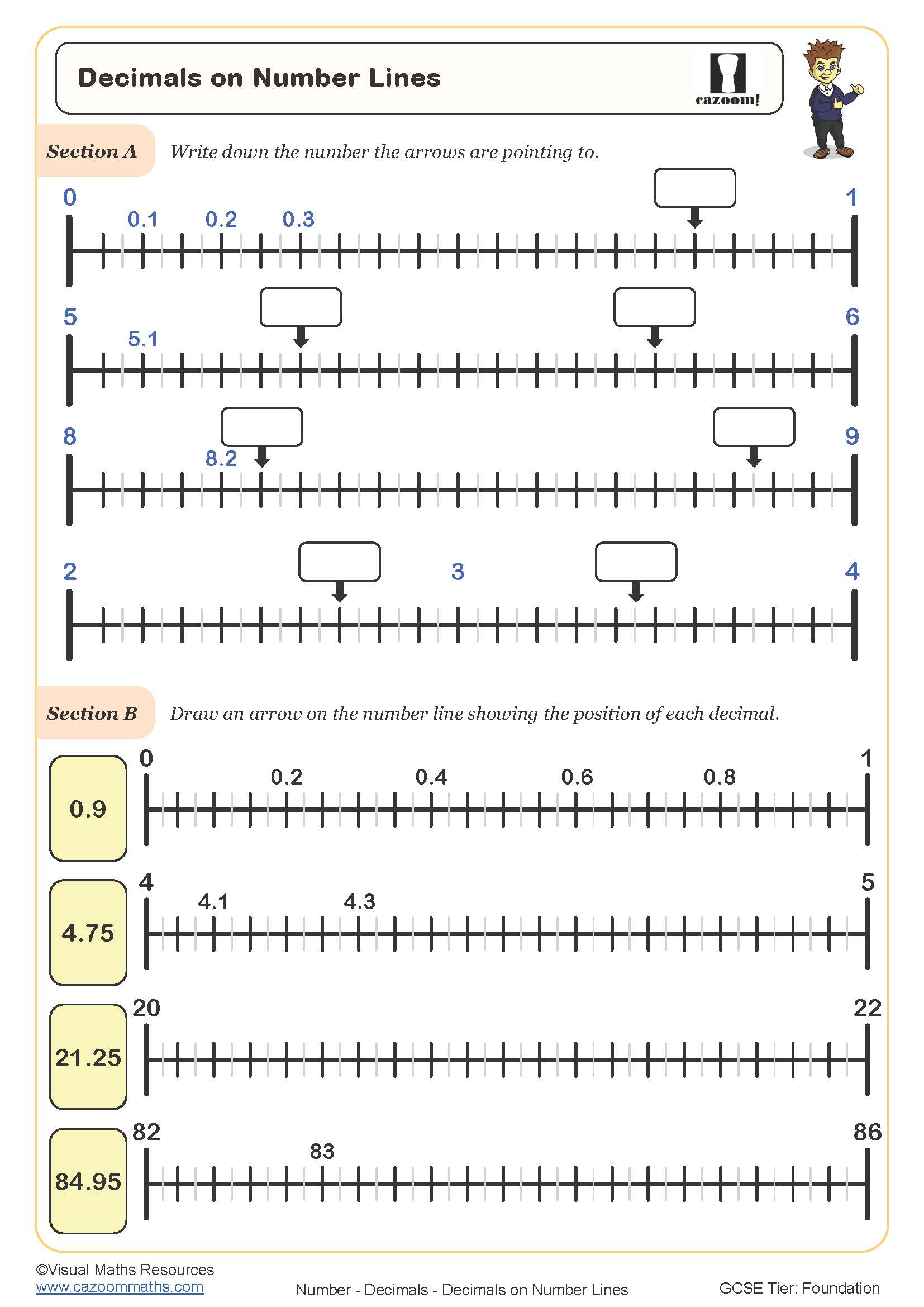
Dividing by Decimals
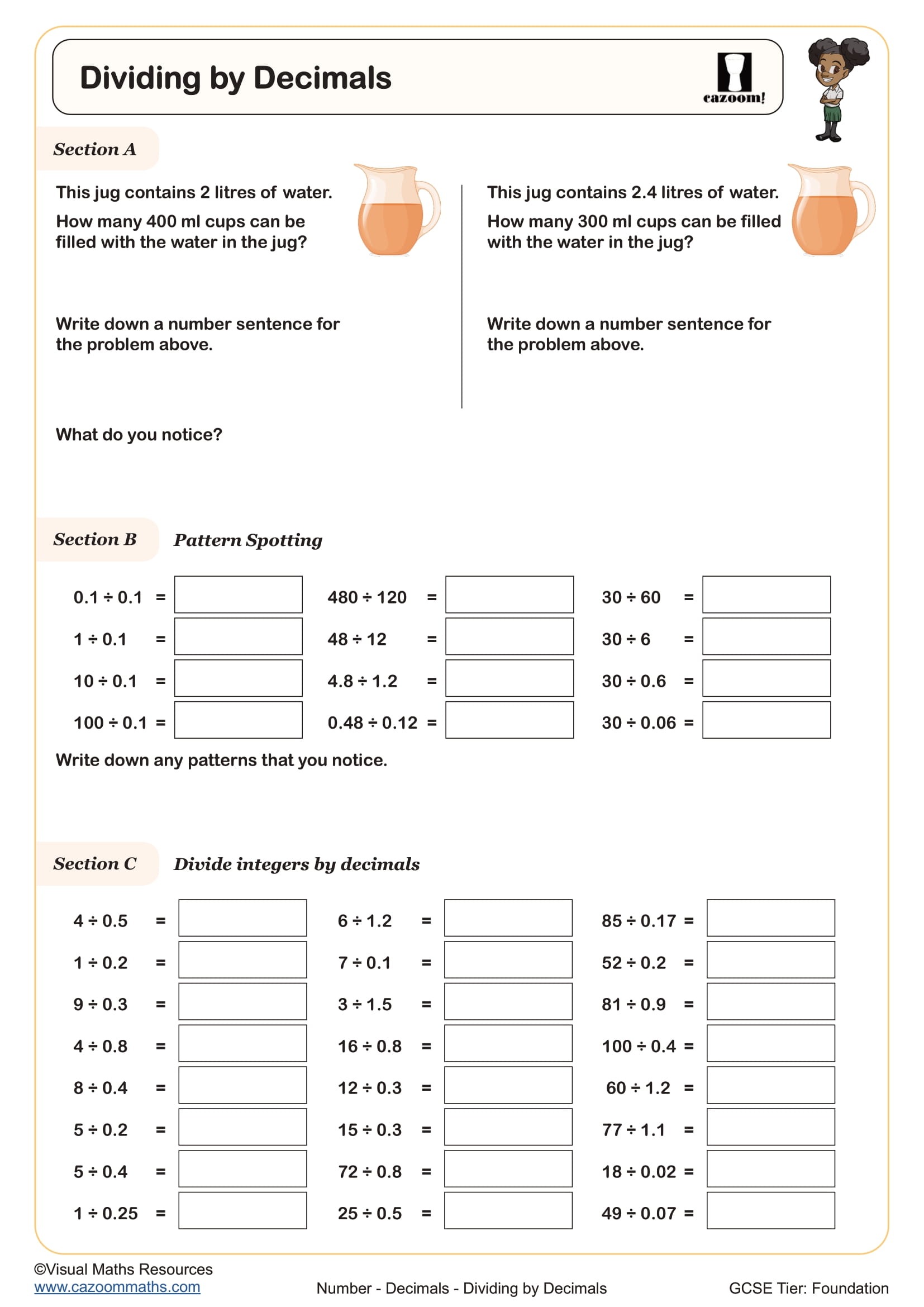
Dividing Decimals (A)
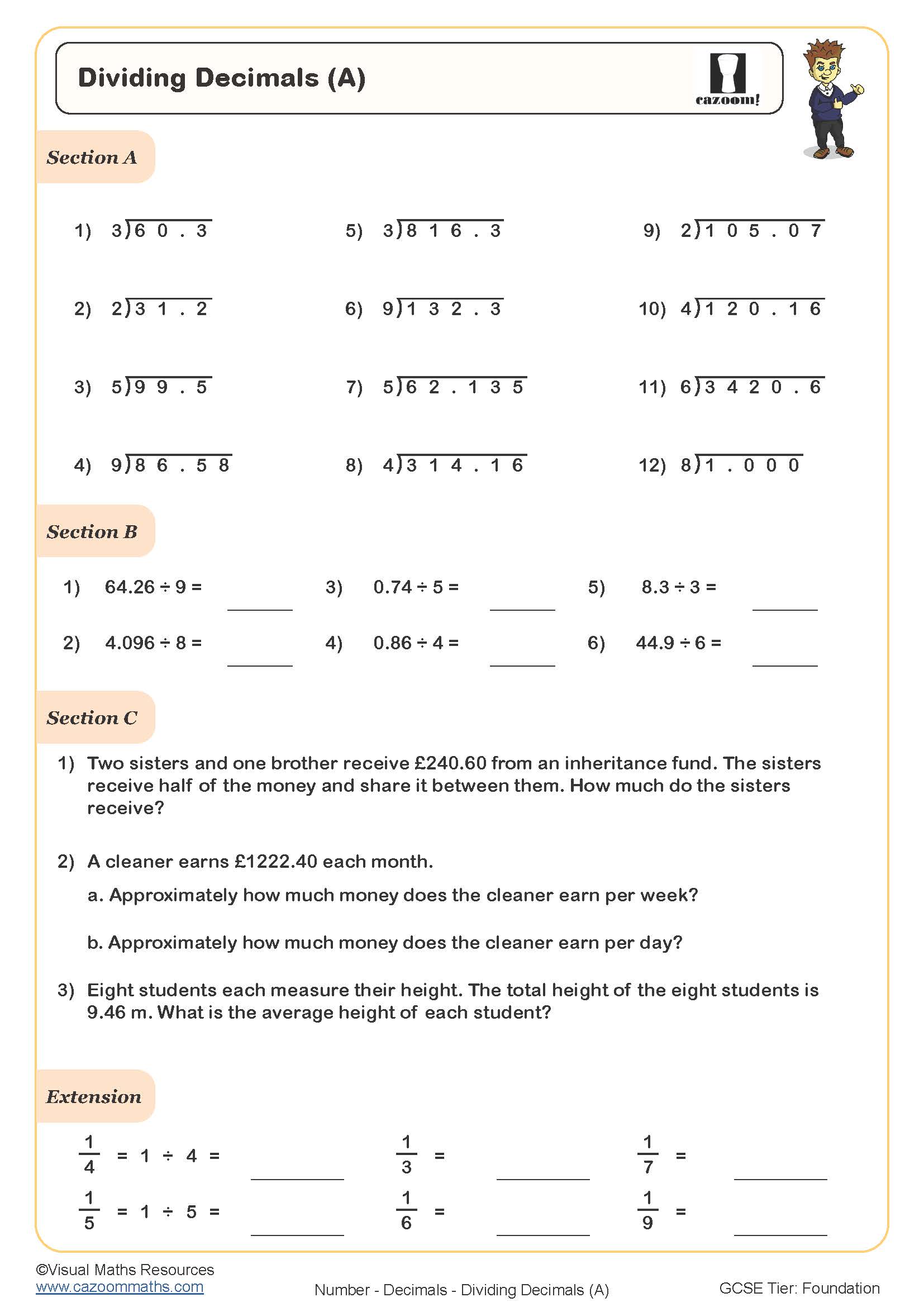
Dividing Decimals (B)
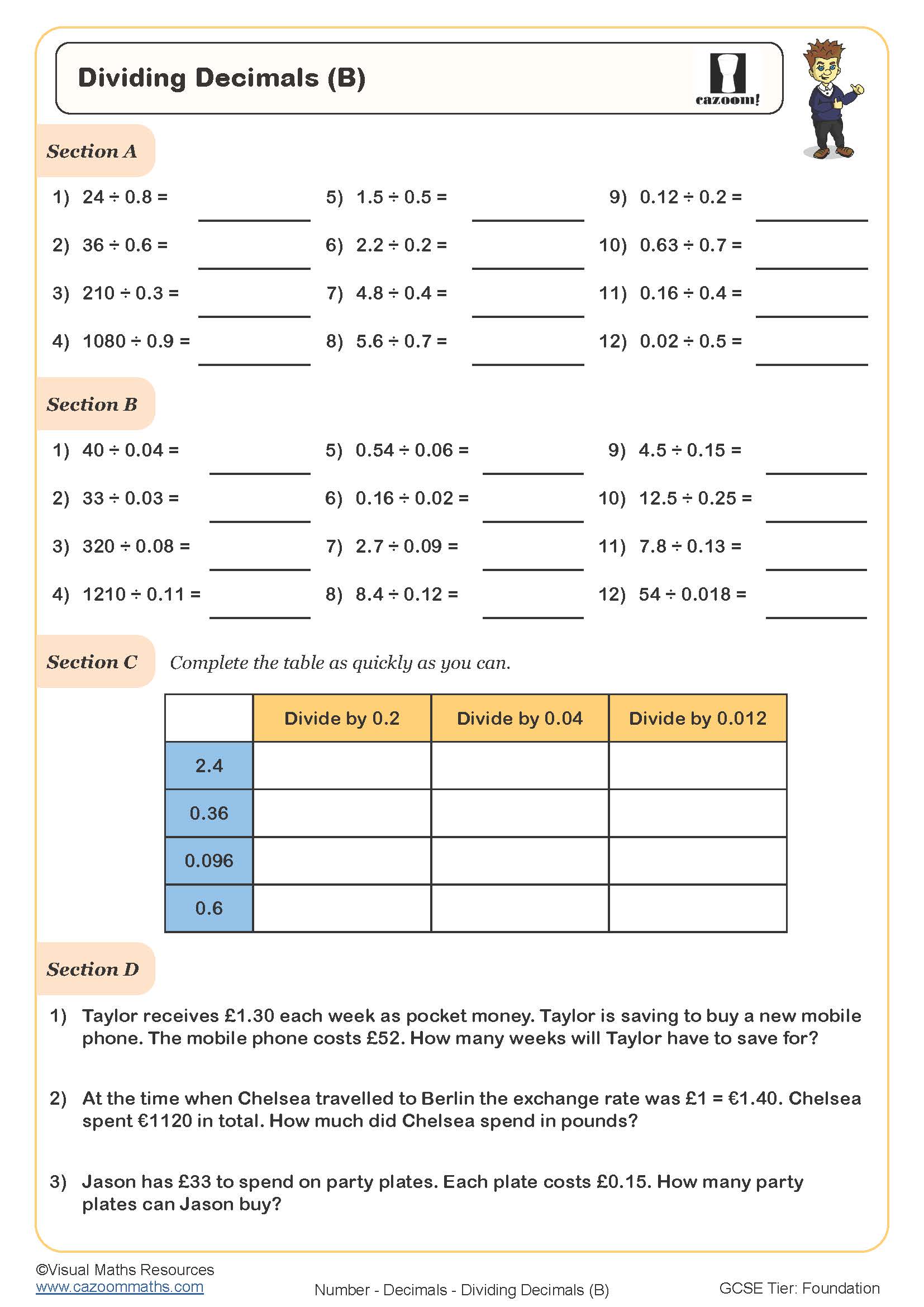
Multiplying and Dividing Decimals
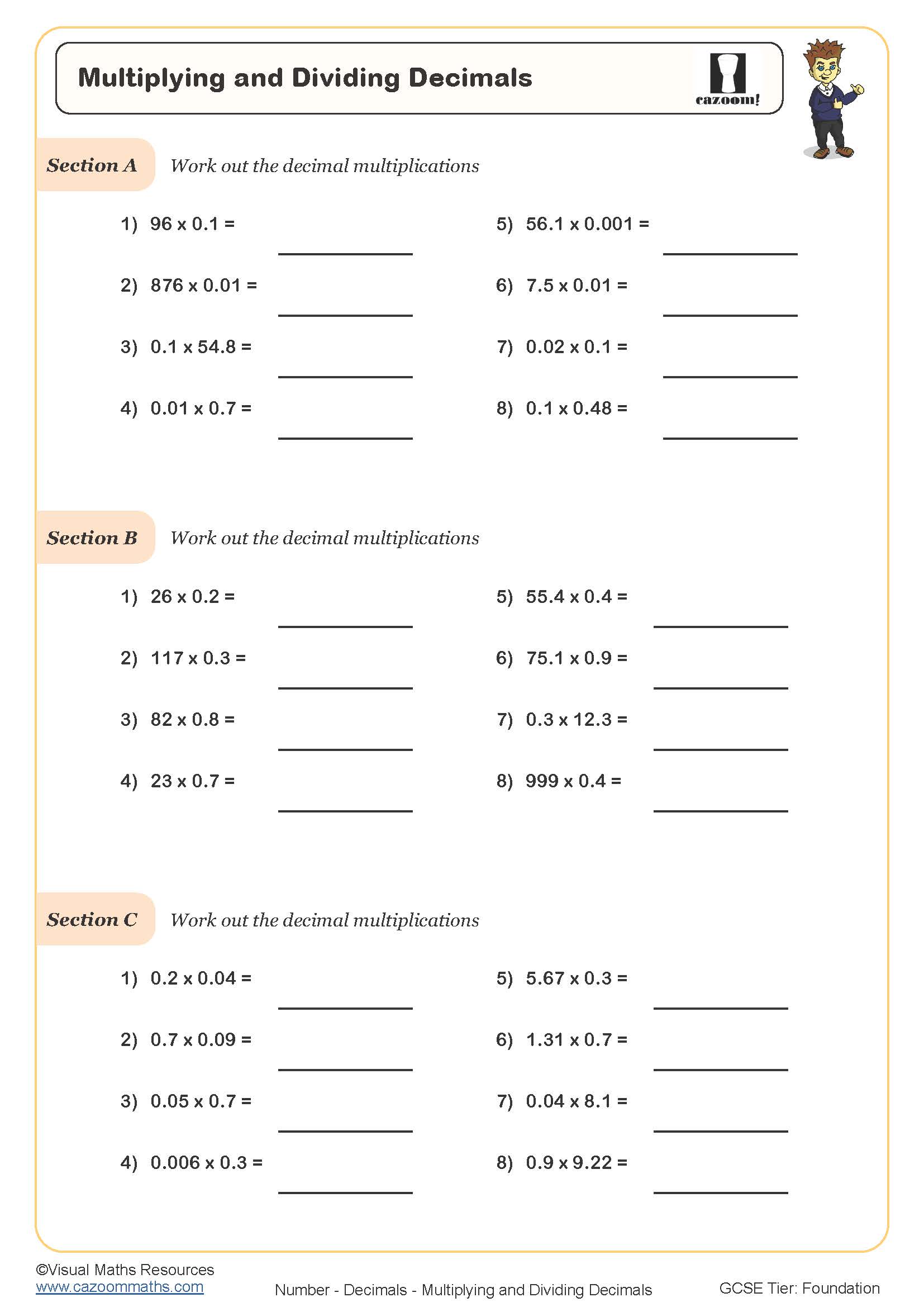
Multiplying Decimals - Using Known Facts
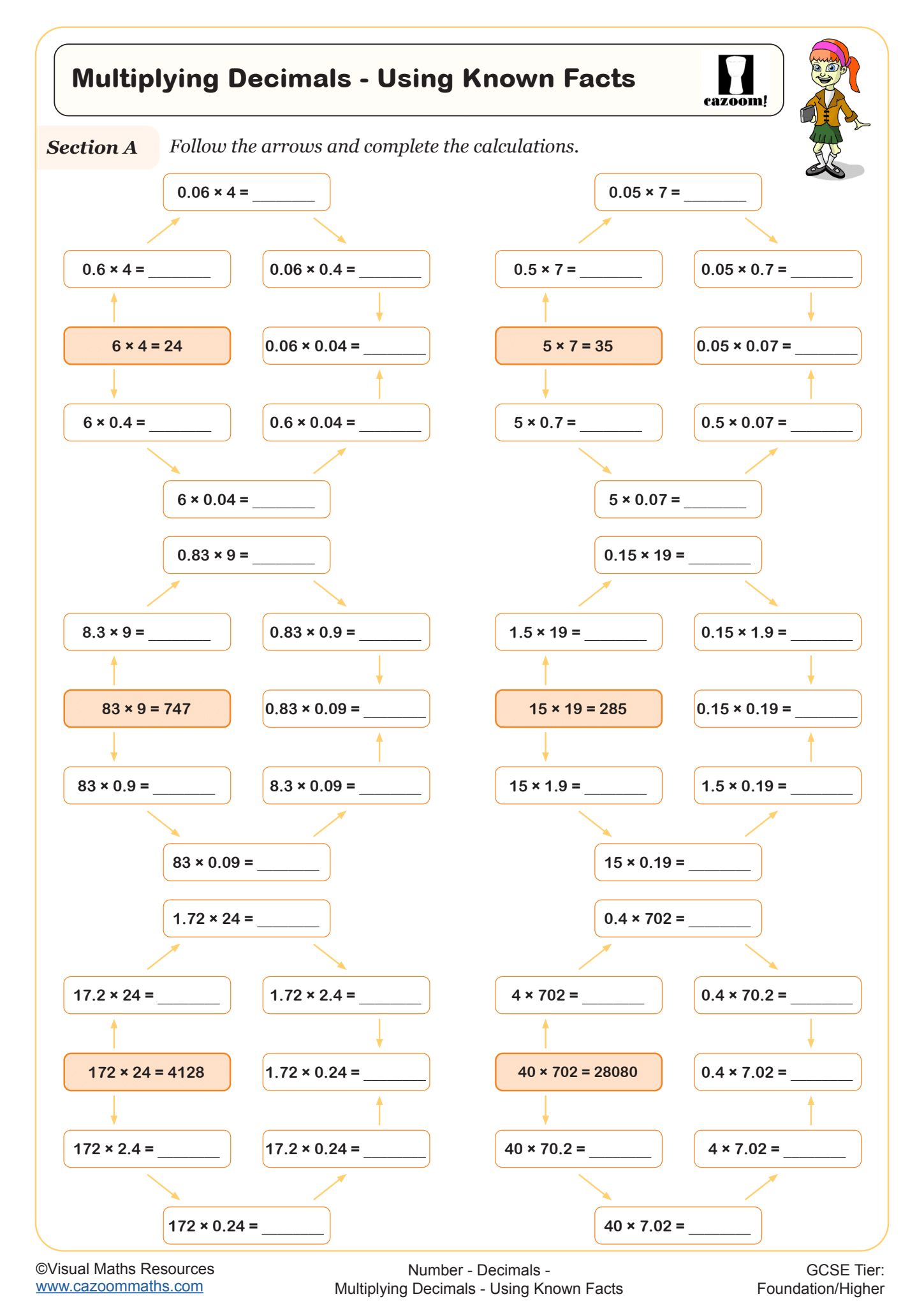
Multiplying Decimals (A)
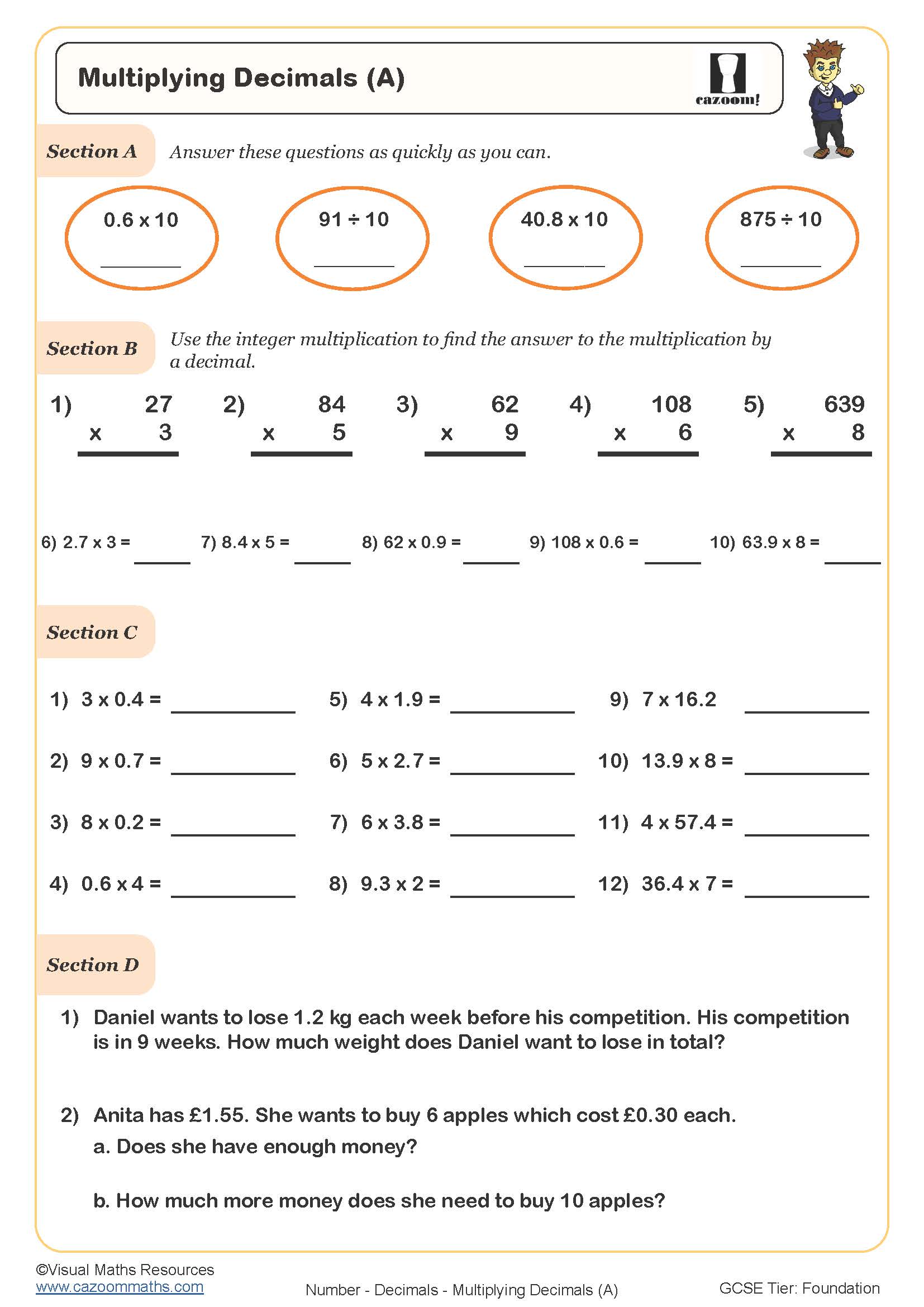
Multiplying Decimals (B)
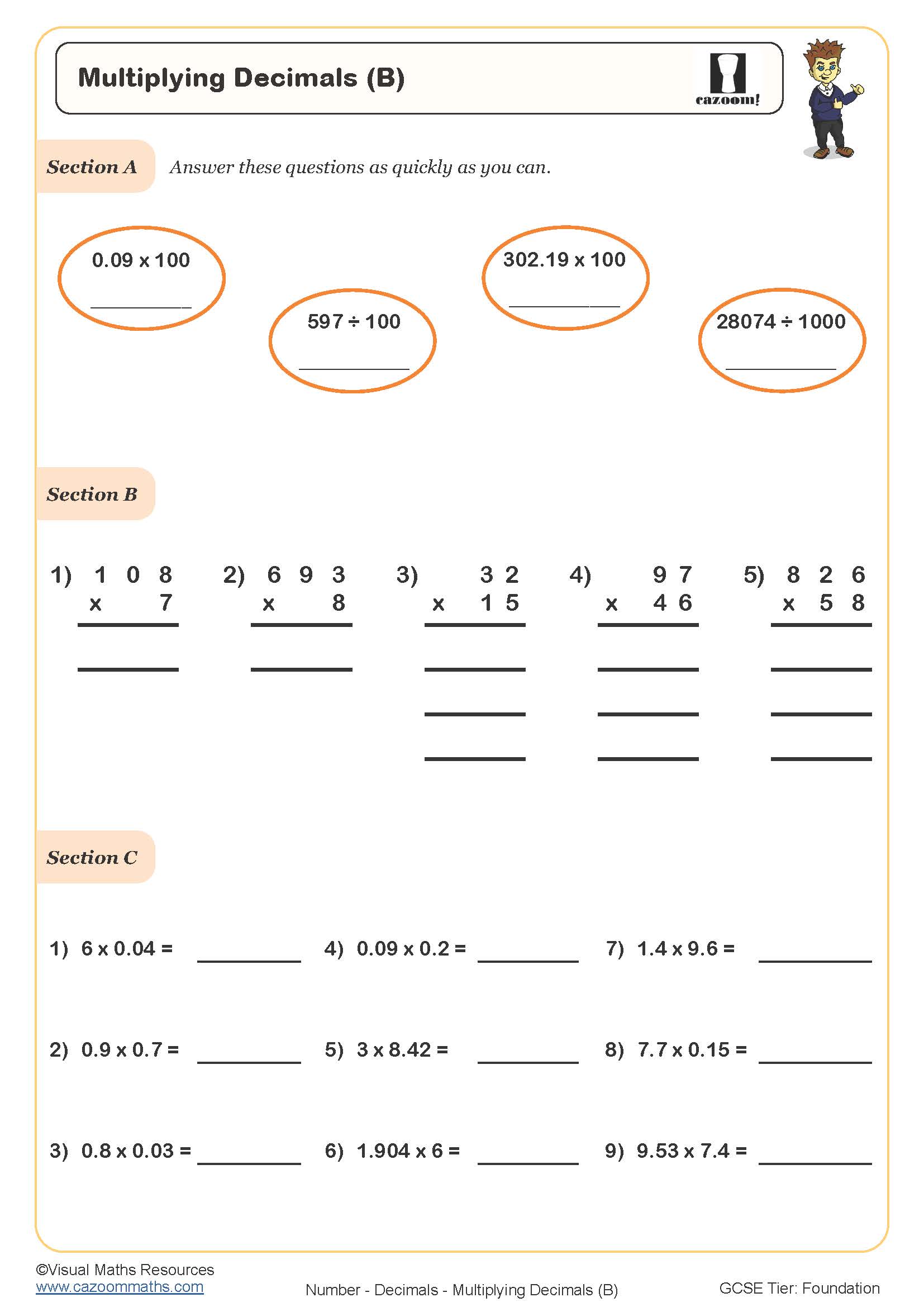
Ordering Decimals
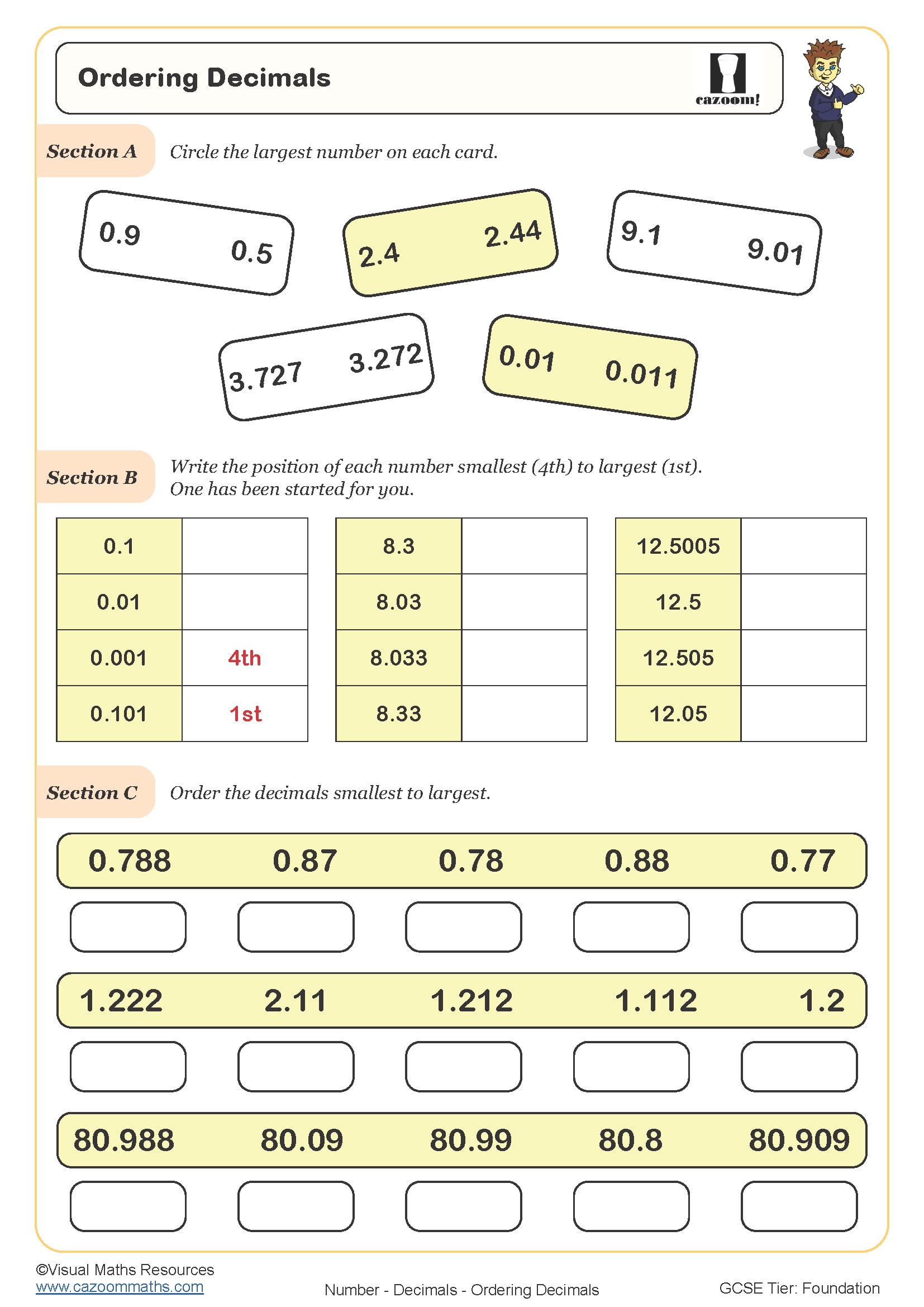
Ordering Decimals Maze
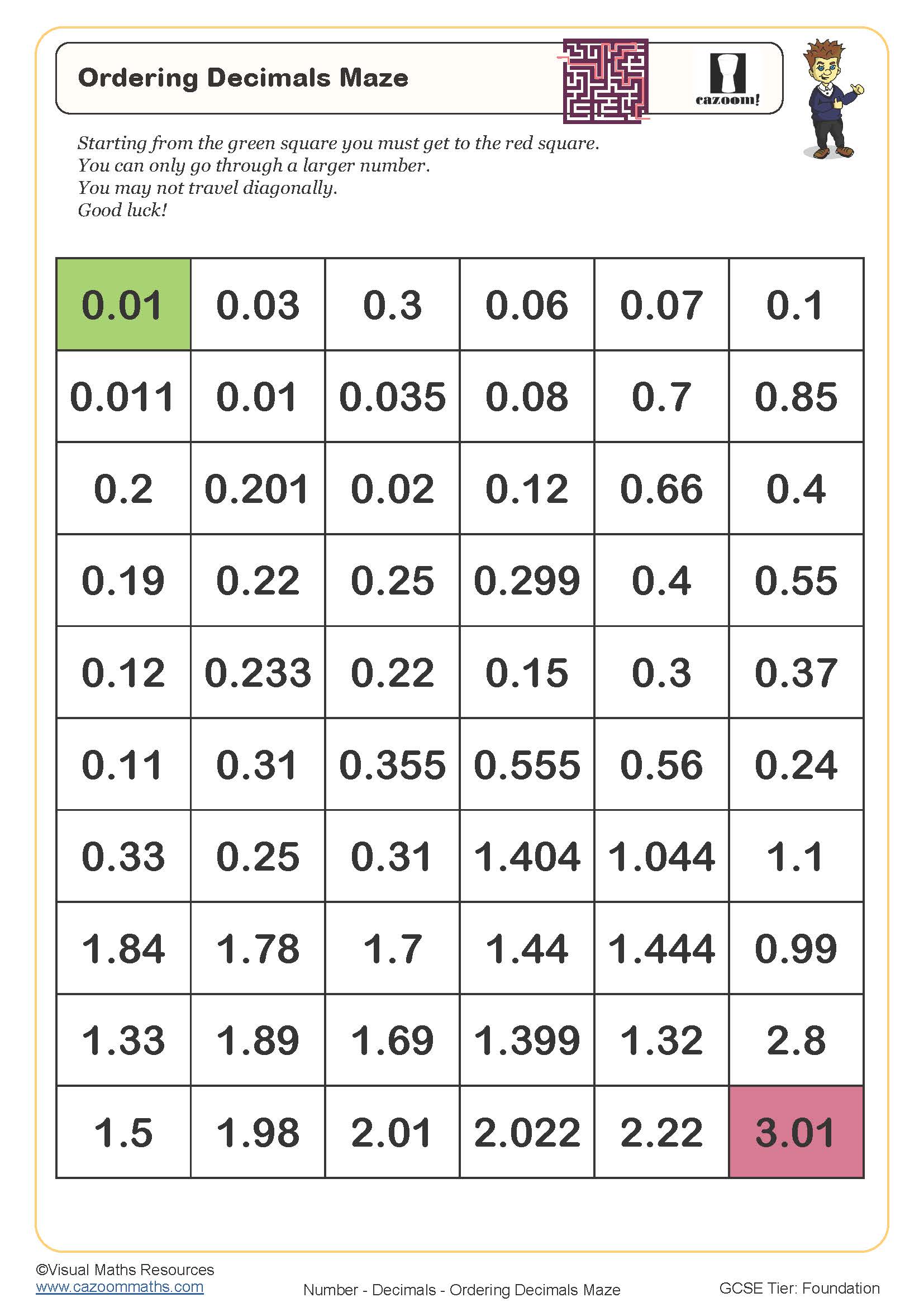
Understanding Decimal Operations

All worksheets are created by the team of experienced teachers at Cazoom Maths.
Transform Decimal Skills With Our Printable KS3 Decimal Activities With Answers
Students in Year 8 need to master advanced decimal operations because these skills will support their upcoming algebra, ratio and percentage studies. Students can move from basic decimal recognition to complex operations with multiple decimal places through regular practice with structured worksheets. The exercises follow a specific order to help students develop automatic calculation skills while keeping their conceptual understanding strong through visual methods and number line activities. Students develop problem-solving skills through exposure to different types of problems, which helps them handle new situations better. These resources teach students to use estimation methods throughout their work so they can check their answers independently, which reduces the calculation mistakes that often continue into GCSE years.
Specific learning benefits include:
• Learn the multiplication and division of decimals
• Develops estimation skills for checking answers
• Strengthens connections between fractions and decimals
• Improves accuracy in multi-step calculations
• Enhances mental arithmetic with decimal values
• Prepares groundwork for percentage applications
• Increases speed in standard form conversions
Essential Decimal Skills Covered in Year 8 Maths
The worksheets scaffold learning from concrete representations to abstract reasoning, beginning with visual models before advancing to purely numerical work. Each topic includes differentiated exercises that challenge advanced learners whilst supporting those needing additional practice. Question formats range from straightforward calculations to word problems requiring interpretation and method selection.
The core skills covered include:
• Adding and Subtracting Decimals
• Column Addition - Decimals (B)
• Comparing Decimals
• Decimal Operations Mixed Exercise
• Decimal Operations Ten Minute Challenge
• Decimals on Number Lines
• Dividing by Decimals
• Dividing Decimals
• Multiplying and Dividing Decimals
• Multiplying Decimals
• Ordering Decimals
• Ordering Decimals Maze
• Converting Between Minutes and Hours (B)
Boost Exam Performance With Cazoom Maths Year 8 Decimal Worksheets
These worksheets were designed for classroom use to meet the needs of Year 8 students with different abilities. Teachers can differentiate their lessons through the clear progression of difficulty levels, which allows them to provide extension work for advanced students and scaffolded support for students who need extra help. The answer sheets with detailed work enable efficient marking while showing common mistakes for class-wide discussion. The worksheet design supports different teaching methods, including independent study and guided practice, without needing extensive preparation. Cazoom Maths worksheets function as a perfect addition to existing schemes of work because they enhance textbooks without repeating their content. Teachers find the most value in the non-calculator sections, which help students develop number sense, while the calculator-based problems prepare students for GCSE assessments.
Why Real-Life Maths Starts With Year 8 Decimal Worksheets
Decimal proficiency extends far beyond mathematics lessons, underpinning countless everyday calculations and professional contexts students will encounter.
• Financial literacy – calculating interest, understanding bank statements, and budgeting pocket money
• Scientific measurements – recording experimental data, converting between units
• Sports statistics – calculating averages, comparing athletic performances
• Technology and computing – understanding file sizes, download speeds
• Construction and DIY – measuring materials, calculating quantities needed
• Nutrition and health – interpreting food labels, calculating daily intakes
• Travel planning – converting currencies, calculating distances and fuel consumption
• Gaming and probability – understanding decimal odds, calculating scores